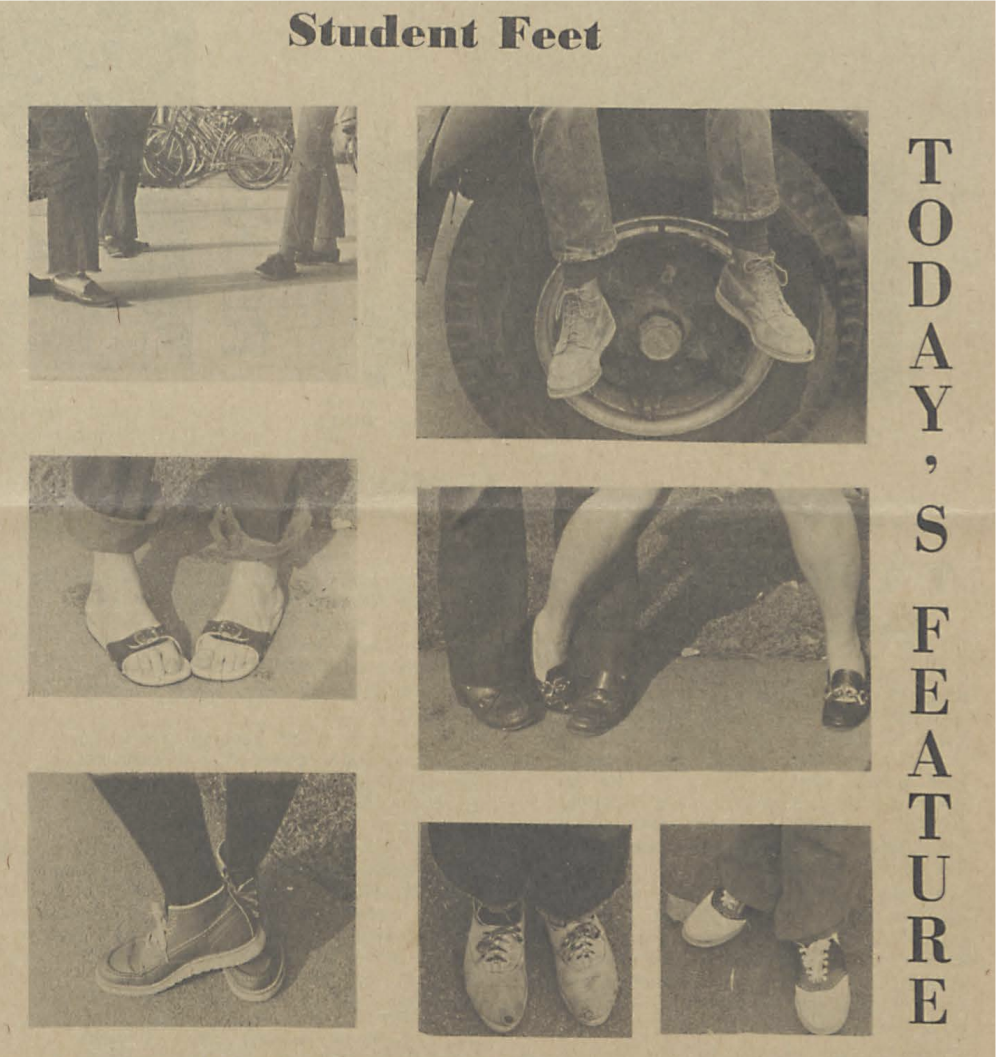November 1, 1970
It’s difficult to believe that October is already over — if you’re like me, you might feel like move-in day was just last week — but through little effort of our own, the months are passing and fall has fully arrived. The temperature is dropping and Wheaton is collectively plodding through a mid-semester workload. The campus atmosphere this week in 1970 was much the same. Here are the most interesting bites of news I could find:
Post Office Backlash?
A concise yet sneakily spiteful “apology” issued to the Norton Post Office made the front page. Apparently in the previous issue, the Wire printed a photo of campaign flyers overflowing in a trash bin and littering the floor. The photo wordlessly demonstrated the “political apathy and ineffectiveness” of bombarding student boxes with campaign paper, much the way we receive spam emails nowadays. Apparently this garnered backlash from the Post Office, who had serious issues with a photo insinuating they didn’t keep their premises swept and dusted to spotless perfection. The student apology seemed to say: Never fear, Norton P.O. — you may be politically apathetic but your floors are gleaming.
Is Revolution Possible?
A small section was dedicated to a student review of a lecture on revolution, given by an Amherst College professor. Titled “Is Revolution Possible in America Today,” the lecture was apparently discouraging at best. The lecture acknowledged that “the most obvious groups not benefiting from the present society” were people of color and the proletariat. Students and young people, as well, suffered a “psychological deprivation” because of their ability to see and critique society, and their simultaneous inability to make change. And the middle class, too, was recognized as being denied “high quality public services,” mainly healthcare, education, and transportation. Despite these clearly timeless issues, the Amherst professor, Norman Birnbaum, maintained that no groups were “capable of leading a revolution,” one reason being that youth inevitably age. The section concluded that though the lecture wasn’t very comforting, half of it was inaudible anyway because of Professor Birnbaum’s “propensity for addressing his ideas to his tie tack.”
A Co-Ed College?
A letter to the editor expressed a desire for the campus to be made co-ed (keep in mind, during the time this issue was published, Wheaton still had eighteen years left of being a womens’ school). The letter senders, who signed themselves collectively as “The Male Hunters,” argued that “certain unsavory characters are always going to be on an all girls campus” regardless of the rules, and that no Wheaton student can expect their campus — and their bathrooms, in particular — to be completely devoid of men. Furthermore, said the senders, “Are girls any less obnoxious (or loud) than males? All girl parties, from what we’ve heard (and experienced) rival any mixed meetings.”
Waited Dinners?
If you’ve ever wished the dining hall operated like a restaurant, there were people from 1970 who agree with you — but not many. Apparently dinners at Chase in 1970 were split into two categories: line dinners (the setup we’re all accustomed to today), and waited dinners, where students sit and enjoy being waited on by dining staff like restaurant-goers. However, this tradition was already going out of style, and when the Food Committee sent out a survey about whether they should continue, not many students expressed enthusiasm about it. The Food Committee was set to make a decision the following week, but I think it’s safe to say this paper officially saw the end of waited dinners at Chase.
Unsatisfactory Enrollment?
The Task Force on Wheaton Priorities decided that enrollment should be the main focus of their efforts. They wanted the next incoming freshman class to be larger than ever, in order to boost the total school enrollment up to 1200. To accommodate this, the dorms above Emerson were created (where before they were faculty offices), and Hebe was switched from staff apartments to student housing (for first-years who may not know, Hebe is currently home to the Office of Human Resources).
